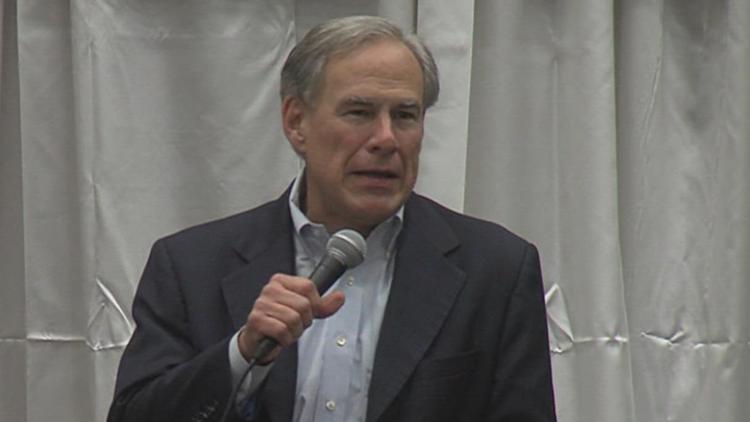CORPUS CHRISTI, Texas — When Brad Jones was tapped as interim CEO of the nonprofit that runs the state’s power grid following the deadly February 2021 winter storm that left most of Texas without power for days, he said he would help stabilize the grid and get it through the summer. Jones was clear that he wasn’t interested in keeping the job long term.
Now, 15 months after Jones became interim CEO — and more than a month after the June target date when Jones had told colleagues and conference crowds that he wanted to step down — the Electric Reliability Council of Texas’ new board of directors still has not selected his successor, according to a report by the Texas Tribune.
Eight sources from across the power industry who spoke to The Texas Tribune say Gov. Greg Abbott — who has no formal role in the process — has put a stranglehold on the CEO search.
The board of directors, installed by a group of three people who are appointed by the governor, lieutenant governor and House speaker, and a contracted search firm have presented CEO candidates to Abbott for final say, according to three sources who spoke to the Tribune on the condition of anonymity to discuss the sensitive issues.
The governor has already vetoed Steve Berberich, a Texan who was vice president of Irving-based TXU Energy and later became CEO of California’s power grid operator and who appeared to have strong support from both the power industry and ERCOT’s board of directors, two people familiar with the matter said.
“The only explanation we got was because he came from California,” said a power industry source familiar with the discussions about Berberich. “Obviously California has its share of problems, but you can’t argue with his qualifications.”
Berberich declined to comment for this story.
This level of involvement by the governor in ERCOT’s hiring process — and in its public communications — is extraordinary in the nonprofit’s 52-year history, numerous sources told the Tribune.
“He has total veto power,” one of the sources familiar with the process said of Abbott.
Abbott’s office controls ERCOT’s public statements
By the time Jones took over ERCOT two months after the catastrophe, Abbott’s office had begun dictating what — and whether — information about the power grid was released to the public by ERCOT, an unprecedented move by a Texas governor, according to current and former energy company directors, power grid employees, longtime energy analysts and consultants who spoke to The Texas Tribune.
After the storm, ERCOT’s public messaging quickly dwindled even as public anxiety about the grid’s reliability soared: Jones has held few press conferences — and when he has, they have almost always been alongside his boss, Public Utility Commission Chair Peter Lake, whom Abbott appointed to replace another leader who left in the post-winter-storm purge.
“The governor is not just reviewing and editing [ERCOT’s public statements]. He’s telling ERCOT whether or not they can release grid information at all,” said a former senior ERCOT employee who spoke candidly about the matter on the condition of anonymity. The source said “it means information is potentially not getting where it needs to go, and that means Texans aren’t hearing what they need to hear.”
At times since the winter freeze, the governor’s office examined press releases and other communications ERCOT had prepared to put out to the public and made changes “if they were uncomfortable with the language,” the former employee said. Before the freeze, the governor’s office was barely involved at all in ERCOT’s public communications, four people familiar with the process said.
ERCOT’s social media posts have also dwindled: In the four months before February 2021, ERCOT posted 41 times on Facebook, a mix of regular grid updates, job postings and statements from its executives about the grid. In the 17 months after, ERCOT has posted only 31 times on Facebook; the same trend has played out on ERCOT’s Twitter account.
“The National Weather Service is on Twitter every day or in the newspaper or on Facebook — there are a thousand ways to reach people where they are,” said Alison Silverstein, a former senior adviser at the Public Utility Commission of Texas, which regulates ERCOT. “The point is to provide so much information that people stop thinking you’re hiding stuff and they stop looking behind every lamp post and stop being suspicious about what you’re not telling them.”
Silverstein, who also used to work for the Federal Energy Regulatory Commission, said grid operators routinely give U.S. governors’ offices a heads up before they release grid information to the public. But governors don’t usually dictate what information is released, Silverstein and other former Texas grid officials said.
Before the winter freeze, that was the case with ERCOT, too, according to numerous sources familiar with the process: The grid operator typically sent press releases and grid update announcements to the PUC, which typically shared them with the governor’s office, a day or two before release as a heads up, and they were rarely questioned or told to substantially change the content.
Abbott, who is up for reelection in November, has almost entirely avoided discussing the grid publicly this summer, even as Texans have been repeatedly asked to conserve electricity and many have seen their home electric bills skyrocket. Abbott’s opponent, Democrat Beto O’Rourke, has made the grid’s problems a big part of his campaign and has criticized Abbott over his handling of the grid during and after last year’s tragedy.
A spokesperson for Abbott did not answer detailed questions about the governor’s involvement in the grid, but said Texas has taken “unprecedented steps” to protect the state’s power system following the 2021 winter storm — including mandating that power generators and natural gas producers better prepare their facilities for extreme weather.



